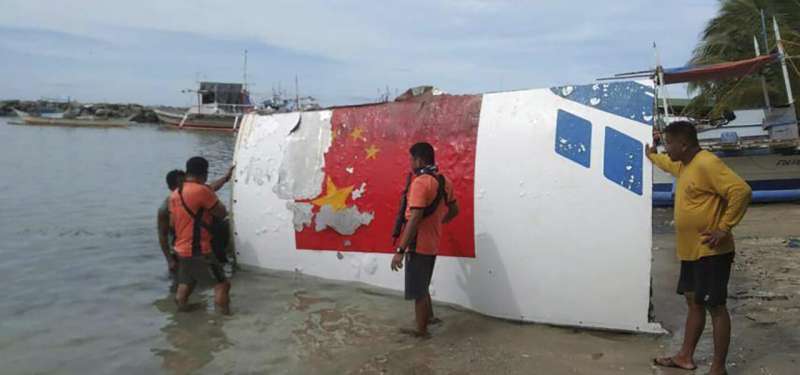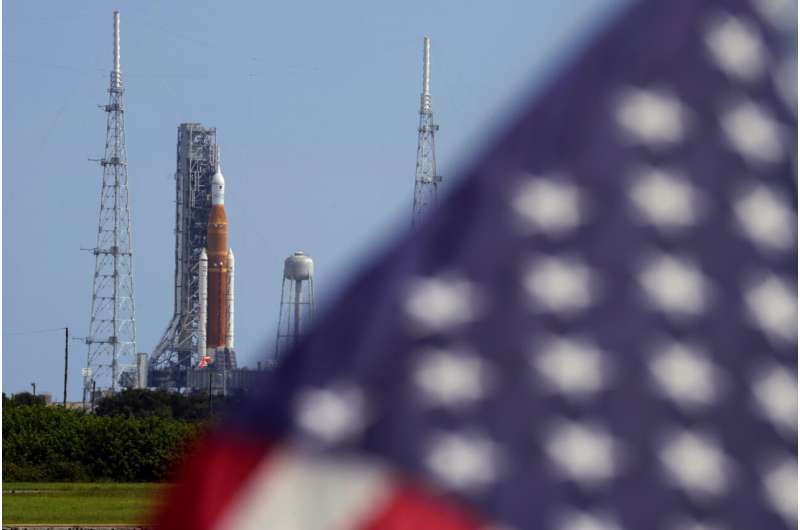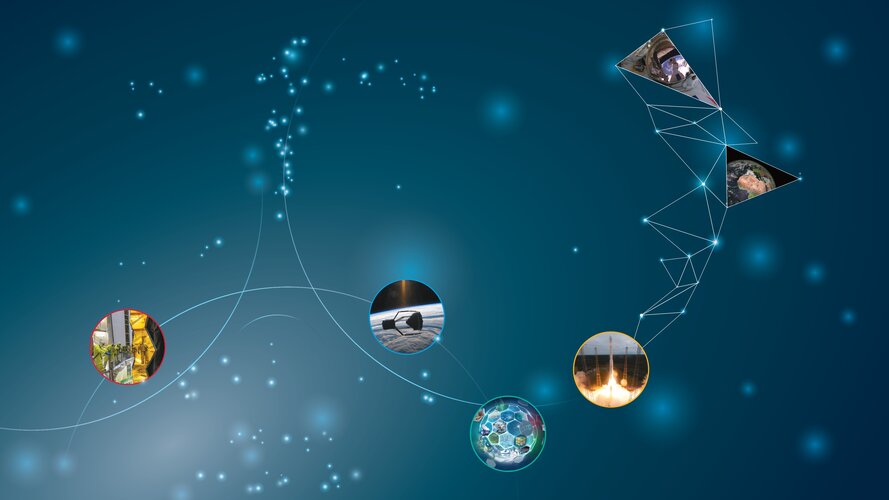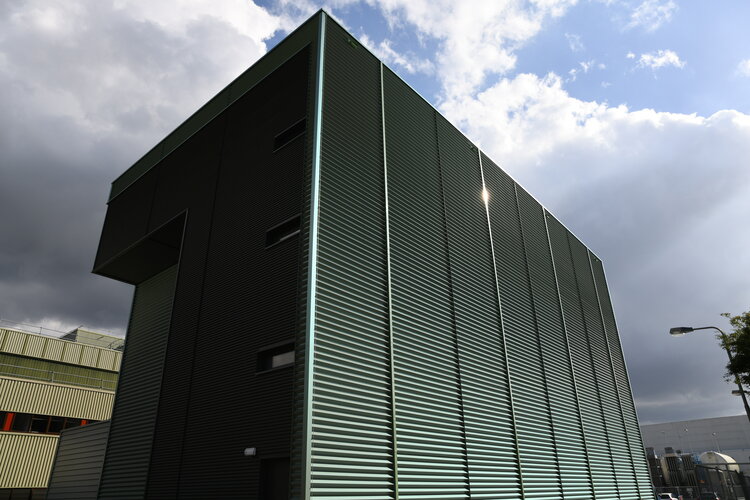
Copernical Team
Mars rover sees hints of past life in latest rock samples
 NASA's Perseverance Mars rover has detected its highest concentrations yet of organic molecules, in a potential signal of ancient microbes that scientists are eager to confirm when the rock samples are eventually brought to Earth.
While organic matter has been found on the Red Planet before, the new discovery is seen as especially promising because it came from an area where sediment and sal
NASA's Perseverance Mars rover has detected its highest concentrations yet of organic molecules, in a potential signal of ancient microbes that scientists are eager to confirm when the rock samples are eventually brought to Earth.
While organic matter has been found on the Red Planet before, the new discovery is seen as especially promising because it came from an area where sediment and sal Media Briefing: Europe takes part in historic asteroid impact demonstration
 Video:
01:04:23
Video:
01:04:23
On September 27 at 01:14 CEST, NASA’s DART (for ‘Double Asteroid Redirection Test’) mission is lined up to collide with a body called Dimorphos – a 160-m diameter ‘moonlet’ of a larger asteroid called Didymos – to try and measurably shift its orbit. In this media briefing, hear more about Europe’s contribution to the DART mission, and learn of ESA’s own mission with a close-up survey of Dimorphos, conducted by a spacecraft called HERA. The HERA mission is planned for launch in 2024.
Lowell Discovery Telescope plays key role in DART planetary defense test mission
 Within two weeks, the DART spacecraft will impact the asteroid moon Dimorphos as it completes the world's first planetary defense test mission. The success of the effort relies heavily on the Lowell Discovery Telescope, which scientists are using for both before- and after-impact observations.
The DART (Double Asteroid Redirection Test) mission is an outgrowth of ongoing interest in planet
Within two weeks, the DART spacecraft will impact the asteroid moon Dimorphos as it completes the world's first planetary defense test mission. The success of the effort relies heavily on the Lowell Discovery Telescope, which scientists are using for both before- and after-impact observations.
The DART (Double Asteroid Redirection Test) mission is an outgrowth of ongoing interest in planet No sighting in northern Philippines of Chinese rocket debris

A new space race? China adds urgency to US return to moon

Space startups pitch to fly at IAC 2022

ESA will introduce ten promising entrepreneurs in its start-up competition held at the 73rd International Astronautical Congress (IAC 2022) in Paris from 18–22 September.
In-flight call between European Parliament and Samantha Cristoforetti
 Video:
00:19:25
Video:
00:19:25
On 15 September 2022, ESA astronaut Samantha Cristoforetti conducted an in-flight call with the European Parliament from the International Space Station. In conversation with President Metsola and ESA Director General Josef Aschbacher, she provided insights into the importance Europe’s presence in space, as well as the scientific and technological progress enabled by its activities. The three also touched on Samantha’s upcoming commandership, life on the Station, and the pressing issue of space debris.
ESA’s Test Centre expands
 Image:
ESA’s Test Centre expands
Image:
ESA’s Test Centre expands World's first satellite with both SAR and Optical Payloads will revolutionize geospatial imaging
 Antaris, the software platform provider for space, and GalaxEye, an imaging satellite operator, has announced the signing of a Memorandum of Understanding to create the world's first satellite featuring both SAR and optical sensors on a single satellite. The MOU highlights a unique commitment between three Indian space leaders-GalaxEye, Ananth Technologies and XDLINX Labs-and US-based satellite
Antaris, the software platform provider for space, and GalaxEye, an imaging satellite operator, has announced the signing of a Memorandum of Understanding to create the world's first satellite featuring both SAR and optical sensors on a single satellite. The MOU highlights a unique commitment between three Indian space leaders-GalaxEye, Ananth Technologies and XDLINX Labs-and US-based satellite Proposed Tandem4EO constellation will combine radar and optical imaging for Europe
 ICEYE, the owner of the world's largest synthetic-aperture radar (SAR) satellite constellation and SATLANTIS, a leading New Space optical imaging company, has announced preliminary plans to develop and manufacture a proposed Tandem for Earth Observation (Tandem4EO) constellation consisting of two radar and two VHR optical satellites. The announced program is planned to support the New Space stra
ICEYE, the owner of the world's largest synthetic-aperture radar (SAR) satellite constellation and SATLANTIS, a leading New Space optical imaging company, has announced preliminary plans to develop and manufacture a proposed Tandem for Earth Observation (Tandem4EO) constellation consisting of two radar and two VHR optical satellites. The announced program is planned to support the New Space stra 